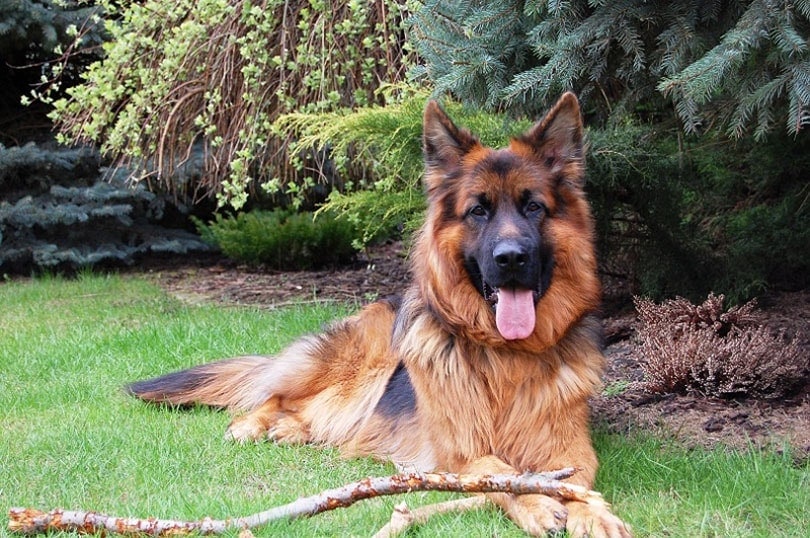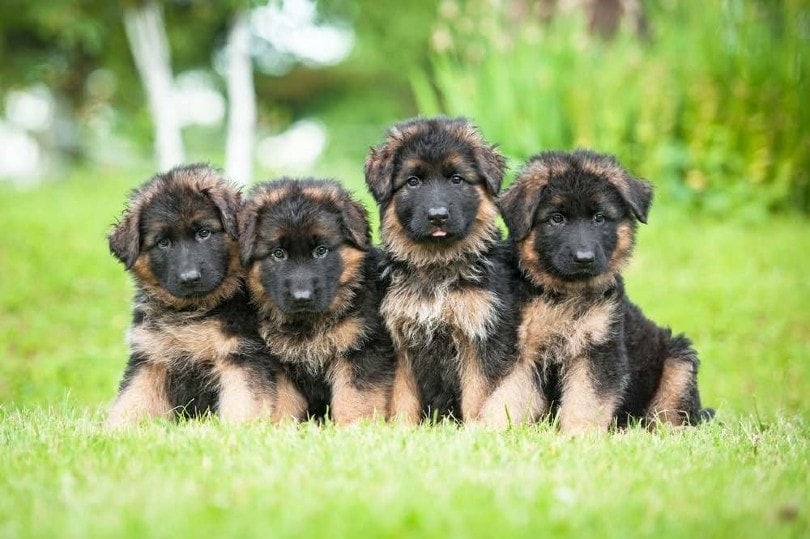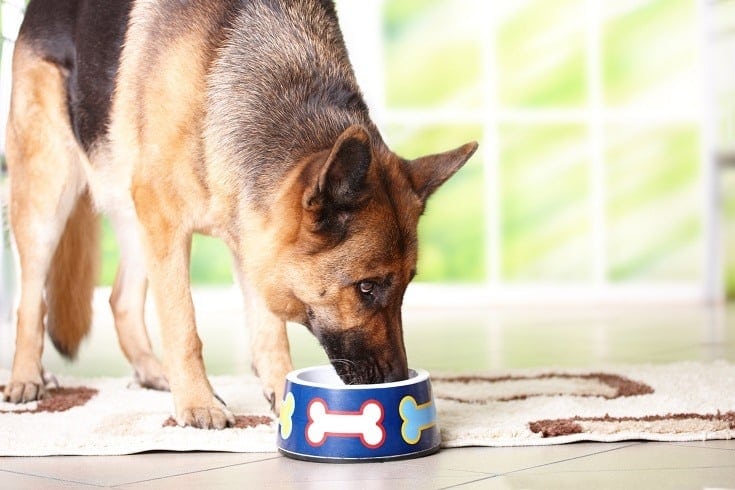How many puppies do German shepherds have in their first litter?

We all know that German shepherd is an intelligent dog and quite active in all his areas. But apart from his intelligence, he is the most fun-loving dog. yes, after owning a German shepherd dog I got to know that German shepherd is very loyal, truthful and has a lot of devotion towards his family and master. And I also found that this is the only breed of dog which is so versatile, he can be your family dog, a guard dog, a military dog, a police dog, a search and rescue dog and a herding dog as well. I can say that this is the most versatile dog.
Factors Affecting German Shepherd Litter Size
While the breed’s size significantly affects litter size, there are other factors at play too. It is impossible to tell how many puppies that a particular dog might have until she gets further into her pregnancy.
These factors may help you make a good guess, however.

Large dogs have large litters. This is most obvious when comparing different dog breeds. In turn, small breeds have small litters.
However, the exact size of the dog also matters. Smaller German Shepherds will have smaller litters on average than larger German Shepherds. There isn’t as much room for puppies!
If your dog is larger, she may end up having a larger litter, or she might not. While size is an accurate way to determine a dog’s potential litter size, other factors are also at play.
Unhealthy dogs often won’t be able to grow as many healthy puppies. Many puppies may stop growing early on and be miscarried or reabsorbed by the mother’s body. This will reduce the overall size of the litter.
The mother doesn’t necessarily have to be blatantly unhealthy either. Even if you feed her excellent food and take care of her, underlying health problems can cause puppies to perish before they are fully developed.
Diabetes is an excellent example of this. This condition tends to go unnoticed when it isn’t severe. The dog likely won’t show any symptoms.
However, improperly fluctuating blood sugar can have a massive impact on growing puppies. Without the proper blood sugar levels, many puppies will not develop properly.
Short-term conditions can also cause some puppies to develop improperly and be reabsorbed. For instance, infections can cause one or more puppies to stop developing altogether.
Most miscarriages go unnoticed without any clinical signs, especially if only a few puppies are lost. Only late-term miscarriages usually get noticed.

Certain genetic conditions in the puppies may cause them to grow improperly and never make it to birth. Usually, this phenomenon is referred to as “lethal chromosome death.”
For one reason or another, the genes that a puppy inherited don’t allow them to develop, and they die in the womb.
This seems to happen most commonly in purebred dogs, according to the vets at High Street Steeping Vet Clinic. Purebred dogs may have more genetic abnormalities than mixed breed dogs because they inherit traits from a smaller genetic pool.
The odds of them inheriting something harmful is higher, simply because there are fewer genes for them to inherit.
Many purebred dogs are also inbred, including the German Shepherd. This fact often doesn’t help matters when it comes to neonatal mortality.
The female’s age has a significant impact on their litter size. Middle-aged German Shepherds tend to have larger litters than younger and older dogs. Your dog’s first litter will usually be smaller, as they are younger.
German Shepherds typically have the largest litters around age 5. After that, they may decline in size.
However, this decline is more rapid and apparent in some dogs than others. The dog’s overall health has a significant impact. Many older dogs have health problems, which likely affects their litter size too.
Some of these health impacts may go unnoticed and therefore, be wrongly attributed to age.
There is evidence that the season that the dog gives birth affects the litter size. However, other studies found no correlation between when the litter was born and the overall litter size.
There may be a regional component to this, though. In areas with more significant seasonal changes, the season may make more of a difference. In the tropics, it may not.
However, more studies are needed to determine this possibility.
Studies have found that dogs may inherit their litter size potential. Dogs that are born to bigger litters tend to have bigger litters themselves.
This contributing factor isn’t huge, though. If there is another factor at play, it will likely take precedent. A sick dog isn’t likely to have a large litter, even if their mother did.
Plus, much of this heritability may be linked to the size of the dog. Many dogs are going to be a similar size as their parents. Therefore, they will probably have similar litter sizes, even if there isn’t any direct heritability of litter size.

There are a few nutritional components that can affect litter size and the overall health of the mother and her puppies. The AAFCO has particular nutritional guidelines for pregnant mothers for this reason. When a mother dog becomes pregnant, her nutritional needs change.
Protein is essential for pregnant dogs. The AAFCO guidelines state that a pregnant dog’s diet should include somewhere between 29% and 32% of protein. This is similar to what puppies need, so many pregnant dogs are often fed puppy-intended dog food.
Fatty acids may also play a role. Dogs with lower levels of serum glucose in their amniotic fluid tend to have smaller litter sizes. Therefore, feeding them a diet higher in omega fatty acids may be helpful.
What Kind of Attention Should be given to a Pregnant German Shepherd?
Feed your expectant German shepherd a balanced diet. Buy her the best dog food you can afford. It is advisable to increase the quantity of food you feed her. Instead of giving her a lot of food at once, divide the food into smaller portions and give it to her many times.
German shepherd Giving birth to 9 puppies – (First Litter)
If you are planning to breed your German shepherd, you might be curious about the number of puppies she will have.
German shepherds are big in size so they deliver a large litter which ranges from 6 to 15 puppies. The size of a litter is determined by many factors such as health, diet, age, size, and individual genetic of your German shepherd.
This article explains the factors affecting the size of a litter, what to expect from a pregnant GSD, and how to take care of her.